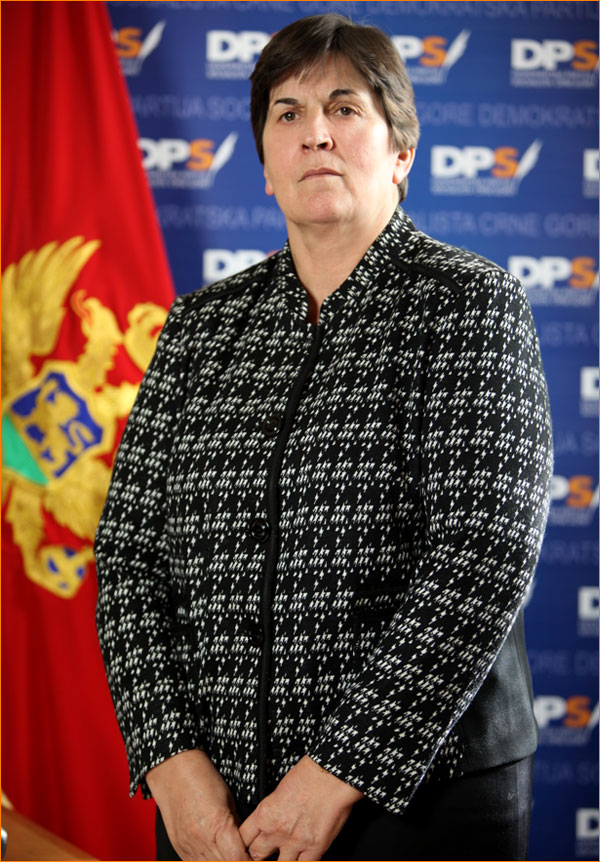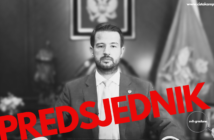MANS warns that the scenario of Pljevlja is imminent this year in every municipality
 In the year of parliamentary elections, 14 Montenegrin municipalities have projected the payment of the whole €4.8 million for one-time benefits, transfers for individuals and on the basis of the operating budget reserve. Those are the same three budget lines that the Democratic Party of Socialists (DPS) has significantly used over the past three years as a mechanism of bribery at elections and for gaining political advantage in the field.
In the year of parliamentary elections, 14 Montenegrin municipalities have projected the payment of the whole €4.8 million for one-time benefits, transfers for individuals and on the basis of the operating budget reserve. Those are the same three budget lines that the Democratic Party of Socialists (DPS) has significantly used over the past three years as a mechanism of bribery at elections and for gaining political advantage in the field.
Analysis carried out by MANS Investigation Center involved 14 municipalities with budget projection data available to the public. Those municipalities are Podgorica Capital City, Nikšić, Pljevlja, Bijelo Polje, Berane, Bar, Budva, Tivat, Kotor, Danilovgrad, Mojkovac, Plužine, Šavnik and Žabljak.
One-time benefits are paid to persons in need, while transfers to individuals in terms of elections may refer to the payments intended as an assistance for acquisition of school books and supplies, in-home care for elderly people, scholarships, disaster relief, apartments or development incentives. The operating budget reserve is projected for expenditures that cannot be planned in advance, but earlier data from MANS indicated that the line was significantly used for social transfers during election cycles.
When it comes to larger municipalities – Podgorica Capital City, Bijelo Polje, Nikšić and Pljevlja, which made their information available to the public, it is evident that significant funds have been allocated on the basis of those budget lines.
Podgorica Capital City, for instance, is projecting €270,000 for social assistance, around €700,000 for social transfers to individuals, while €280,000 have been projected for the operating budget reserve. The total sum is €1.2 million, which is how much the local self-government run by the DPS and its prominent official and Mayor Slavoljub Stijepović will have at their disposal in the year the parliamentary elections will be held.
The municipality of Bijelo Polje has allocated €800,000 on the basis of the three budget lines, €70,000 of which is for social assistance, around €570,000 for transfers to individuals and another €150,000 for operating budget reserve. The head of the Municipality of Bijelo Polje is another DPS official – Aleksandar Žurić.
Another Montenegrin municipality has projected a substantial sum on the same basis. The Municipality of Nikšić, headed by Veselin Grbović, a DPS official, has around €770,000 at disposal, €92,000 of which is for one-off social assistance, €80,000 will be paid as social transfers to individuals, while it is evident that the whole €600,000 has been projected for the operating budget reserve.
Regarding Pljevlja, which is one of the larger Montenegrin municipalities, also run by the DPS (the chair is a member of the party, Mirko Đačić), official data indicate that the local self-government has allocated nearly €130,000 for social assistance, over €60,000 for transfers to individuals, while €150,000 goes for the operating budget reserve. It is the total sum of €340,000.
Speaking of coastal municipalities, Budva has allocated around €360,000 for the three budget items, Bar has allocated €290,000, Kotor €180,000 and Tivat €130,000. At the same time, Berane has €220,000, Danilovgrad €170,000, Plužine €150,000, Šavnik 100,000, Mojkovac €50,000 and Žabljak €27,000.
Up to now, there has been a complete lack of control over money spending in pre-election periods by local governments. Also, authorities never raised the question of responsibility of municipality officials with regard to the misuse of resources in order to have the influence over political will of the citizens, which was documented by MANS Investigation Center a number of times.
This text has been made with the support of the European Union within the project „Zero Tolerance to Corruption“. Network for Affirmation of Non-Governmental Sector – MANS is solely responsible for the contents of this article, and the views taken herein shall not in any case be considered as those of the European Union.
There is a well-devised scheme
There are two types of payment of social assistance to persons in need. One type comes from the Government, which provides funds to the Ministry of Labor and Social Welfare through the state budget. The Ministry directs the funds to social welfare centers, which make direct payments.
MANS Investigation Center discovered that the DPS’s Government, namely the Ministry of Labor and Social Welfare, had redirected many times larger funds to social welfare centers which made social assistance payments, right before the parliamentary elections in 2012, as well as before presidential elections held in April 2013.
The most representative example of misuse of social assistance for election purposes is a well-known “Pljevlja case”, which was discovered by MANS and which revealed that the cost of a single vote in Pljevlja, right before the parliamentary elections in 2012, was 50 euro.
The other type of social assistance payment is made by local governments. Their budgets also provide social assistance for persons in need. The money is usually paid through secretariats for social care or through resolutions made by municipality chairs, who give approval of social assistance.
Votes were paid as low as 50 euro
During previous early parliamentary, local and presidential elections, MANS also analyzed social assistance payments for which there was a reasonable doubt that they were the cases of vote buying in the field.
The information we got pointed to the fact that votes had been being bought in almost all Montenegrin municipalities through the use of social assistance. Thus, a single vote was the most expensive in Plav, with the average price of 170 euro. In Nikšić, Rožaje and Andrijevica the cost was 100 euro, while in Budva, Tivat, Kotor, Herceg Novi, Pljevlja and Žabljak it was 50 euro. A bit higher price was in Bijelo Polje – 75 euro average.



